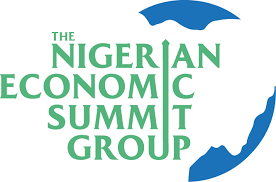Nigerian Economic Summit Group (NESG) CEO, Tayo Aduloju, has stressed the need for well-sequenced and timely economic reforms to stabilise Nigeria’s economic landscape. Mr Aduloju made this known during an interactive session with select newsmen in Lagos and monitored online Abuja. Mr Aduloju said that the nest Economic Summit will be conveyed to take a sober look at the economy and policy prescription by NESG in the last 30 years. He stressed that even beneficial reforms could have adverse effects if not properly sequenced. The challenge with explaining that is what is a well-bundled set of well-sequenced and timed reforms? “We think that the best reforms in this world, if you do not sequence them properly, can be devastating,” he stated.
He highlighted the impact of recent macroeconomic reforms, such as foreign exchange (FX) and Petroleum Motor Spirit (PMS) price adjustments, on businesses in the first quarter of this year. He said that these adjustments had resulted in increased costs across various operations of businesses from raw materials, logistics, working capital, and inventory, as outlined in NESG’s report on pass-through risks. The NESG CEO said how the internalisation of inflation within business models has influenced business decisions that has lead to reduced asset utilisation and a possible contraction in Gross Domestic Product GDP.
According to him, the current economic environment, characterised by higher credit costs and elevated business risks, has compelled companies to streamline their operations to navigate these challenges. This, he said, could signal a contraction in the gross domestic product (GDP). Mr Aduloju expressed cautious optimism regarding Nigeria’s economic trajectory, emphasising the need for comprehensive reforms and enhanced coordination among all stakeholders to achieve sustainable growth.
He said that the upcoming 30th Nigerian Economic Summit by NESG, scheduled for October, would be centred on reflecting on past economic strategies and charting a new course towards long-term economic stability and growth. The summit aims to facilitate discussions among government, private sector, and civil society stakeholders to develop a consensus on the economic model necessary to propel Nigeria’s transformation over the next decades. “We cannot afford not to do it in a way that absorbs people into productive work. We can’t afford it. And so what pivots will we make? That’s the essence of the 30th anniversary. A reflection, and a forward-thinking on big consensus, especially political consensus on the economic model,” Mr Aduloju said.

